There’s nothing quite like that moment when your baby’s face lights up when they see you. That awareness, that first meeting and magical moment, that represents a major stepping stone in the development of your partnership. As you parents are wondering about these magical moments of connection and the awareness of babies recognizing parents, we can help ease your mind a bit by giving you the inside scoop on when babies learn to recognize parents and how that recognition makes itself apparent – not to mention a few fun baby joy tips for recognizing, supporting, and nurturing the emotional connections you are cultivating together.
The Science Behind Baby Recognition Progress
When Do Infants Recognize Faces?
The way babies see is really quite fascinating. Babies see faces at birth, in fact they see them best at the exact distance from which they are most often held, 8-12 inches. Research has shown that :
- Newborn babies like to look at face-like images an hour after birth
- Babies might begin to recognize familiar faces by 2-3 weeks
- 2 months : babies begin to show social smiles when they see familiar faces
- At 3-5 months babies tend to have good parent discrimination.
They develop facial recognition among other types of recognition in senses. Your baby is looking at you — not only seeing you but learning to recognize your voice, smell, even your unique touch. Your baby is making a multi-sensory connection to you that will only grow stronger over the years of your child-rearing parenting.
How Baby’s Vision Develops to Support Recognition
Your baby’s ability to see you grows at the same time :
- Birth- 1 month : Vision is blurry and clear only at 8 -12 inches away.
- 2-3 months : Better focusing and tracking skills
- 3-5 months : Enhanced color and depth perception also begins.
- 5-8 months : Almost adult–quality vision
This visual unfolding also explains why everything you do to help your baby “see” you better in the first six months can have such a powerful effect — she literally sees your face more accurately with each passing week!

7 Adorable Signs Your Child Knows Who You Are
Signs of Early Communication (birth – 3 months)
They’re already getting to know you before they can give in an overt way. Here are some signs of that early recognition :
- Soothing touch : Newborns who are quickly soothed also fall asleep faster for earlier stress free bed times.Expressions followed by comforting actions: Parents and other caregivers will learn how to read the expressions of their growing baby.
- Voice detection : Studies find babies recognize their mother’s voice instantly from birth
- Eye tracking : You’ll notice them track your face more than the other object they are watching
- Early smiles : The little reflex smiles become real social smiles and they appear to be for you!
One mom wrote, “When my daughter was only 2 weeks old, she would turn her head towards my voice. That was the first moment she realized who I was and it just melted my heart.”
Unmistakable Recognition Signs (4-8 months)
By month seven and eight, the evidence that babies see that you are you is irrefutable.
- Welcome moments : You might notice his activity level, like kicking legs or flapping arms, step up a notch when he’s expecting to see you; lots of babies will become hysterical to see you at seven months.
- Anchored reaching : When they open their arms out to you, they’re reaching out to you!
- Separation anxiety : Most children develop a fear of separation from their preferred caregivers at around eight months. When a baby has now begun to carry into practice extreme forms of protest (cheers and tears!) when a favorite person springs, you learn that they think of you as a favorite person.
- Fear of strangers : Another reliable sign is that when babies start to get concerned or frightened with other people, they’ve decidedly come to be able to differentiate between you and unknown others.
The Special Relationship : Emotional Recognition
Babies not only can notice your facial expressions, but they can do it well :
- At around 5-7 months, your baby forms what’s called “social referencing,” which is when your baby glances at your face to get a sense of how to feel about a new situation.
- By 9-12 months, they will try to soothe you when they think that you are upset
- Over the course of their first year, they’ll develop the ability to mimic your facial expressions.
Connecting emotionally with baby is a form of recognition that transcends simply recognizing you because of its understanding of you as its secure base.
How to Develop Your Baby’s Recognition Sense
Strategies for Face-to-Face Interaction
Babies need frequent, uninterrupted face-to-face time to develop recognition skills. A few baby joy ideas :
- Read with them every single day for 10-15 minutes and make eye contact properly (look at each other at the right distance 8-12 inches);
- Name your facial expressions: “See, Mommy is smiling!” This can aid infants in linking facial movements to emotions;
- Reduce distractions. Try to limit screen time or cut out background noise so your connection with baby is a special time;
- Simply start with playing peek-a-boo, so your baby knows that when he or she hides your face with their hands, or when you cover your face with your hands, or when you hide behind your head, your face is still there.
Developing Recognition Routines
But your baby’s developing brain and understanding of the world around them also reward your consistency, helping them recognize not only your face but your patterns, too.
- Establish a pattern around the same regular greetings upon entering a room.
- Incorporate a special song or phrase into care giving routines.
- Institute regular habits of behavior at bedtime.
- Create meal times and stick to them when able.
These rituals of the day are not only a way for the developing senses to form in order to recognize faces, but are also an extensions of your bond.

Sleep : Understanding your nighttime baby and baby cues
Importance of sleep for memory in childhood: The role of memory for past and future performance during sleep Sleep is critical for memory formation in several cognitive domains, including recognition formation. Curiously, infants who develop the rhythm of sleep well without crying might also show better recognition skills. Types of natural and gentle sleep methods include the following :
- Emphasis calming baby to sleep techniques that preserve parent-baby relationships.
- Start a newborn sleep schedule that includes face-to face time before naps
- Give these no-cry newborn sleep solutions which respects parent recognition security a go
- Be on the lookout for recognition cues during night wakeful periods. Many babies show plenty signs of recognition even when groggy.
Conclusion : Celebrating Each Recognition Milestone
So many sweet milestones to celebrate as your baby takes this journey to knowing you. You might find your baby looking at you from a distance and appearing to hold your gaze, or you may get that happy greeting you’ve always hoped for. Each of these acknowledgment accomplishments shows how your relationship with your baby is developing. Remember, babies develop in their own time, so relish these baby joy tips but be patient with your little one’s development.
As you perpetuate that close relationship, snap some pictures, record notes or create some videos – maybe even just some simple ones – of the recognition moments. These occasions are short, but they are building your lifetime of memories together. Do you notice any signs of recognition from your baby? Your first as in (What’s your first one that melts your heart? And these moments are gifts, and you should celebrate them.
Frequently Asked Questions
When do babies recognize their mother’s face?
Babies begin recognizing their mother’s face a few short weeks after birth. At 2-3 weeks, babies show a preference for their mother’s face and usually smile socially when they see mom by 2 months of age.
Do babies recognize their father as quickly as their mother?
Babies may recognize their mother slightly earlier as they are familiar with her voice prenatally and spend a lot of time early on breastfeeding or bottle feeding. That being said, any baby that has regular contact with their father should be able to recognize him within the first 2-3 months.
What are the earliest signs a baby recognizes their parents?
Early signs include calming more quickly in their parents’ arms, tracking their parents’ faces more intently than others, turning toward familiar voices, and eventually offering those precious first social smiles around 6-8 weeks.
Can newborn babies recognize their parents by smell?
Yes! Newborn babies are very olfactorily dominant, meaning they are very good at detect odors. Newborn babies can recognize their mother’s scent only a few days after birth. Newborn babies will usually turn toward whatever smells the like their mother’s breast milk and what they have learned about their mother’s body smell.
How can I help my baby learn my identification faster?
The single most important factor about your baby learning who you are is to get face to face. I suggest that you spend time every day at the appropriate distance (8-12 inches), interact in a talkative manner from a distance (8- 12 inches), respond to your baby’s behavior and be consistent.
At what age do babies smile at their parents?
At what age do babies smile at their parents?
Naturally, babies are born with reflex smiles and they will still remember you and indicate it with a reflex smile. Social smiles appear around 6-8 weeks. By 3 months smiles become social smiles that are intended for you alone.
Why does my baby seem to have the ability to recognize some people faster than others?
The main determinant of how quickly young babies recognize people is how often they interact with them. Young babies recognize people in real life that they see on a regular basis and interact with face-to-face. Voice recognition, physical differences, and a more engaging interaction can also positively impact faster recognition.
Can babies recognize parents in pictures or video chats?
Babies usually begin to recognize their parents in photos around 5-6 months of age. Video calls might have quite a bit of luck in recognizing their parents a little earlier since they have body motion and a clear voice, but they should recognize parents in real life first when developing recognition, and that is what they primarily remember to recognize their parent for the entire infancy stage.
Is baby recognition ability related to overall development?
While recognition will develop in its own time, recognition does correlate with certain social-cognitive milestones. In general, slight delays in recognizing faces are rarely concerning. If you have ongoing concerns about your baby’s overall development, you should check in with your pediatrician.
Does breastfeeding affect baby recognition?
Breastfeeding involves prolonged, close, face-to-face contact and contributes to enhancing this early recognition. When babies breastfeed, they are employing all these sense modalities (smell, touch, taste, and special visual stimulation). When exploring their recognition of a breastfed parent, the baby is using multiple sensory pathways for recognition.
When do babies start to recognize their own name?
Around 4-6 months of age, most babies begin to show they recognize this important sound by turning toward it. The ability to verbally recognize their own name builds on their earlier visual recognition abilities that occurred prior to this age.
When do babies start to know their own name?
Most babies will begin to turn their head toward their name around 4-6 months showing they recognize this particular sound, which is a big step toward verbal recognition. This skill is built on their earlier recognition skills.
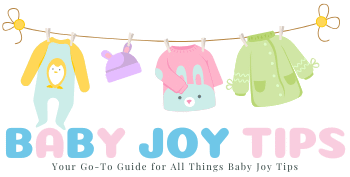


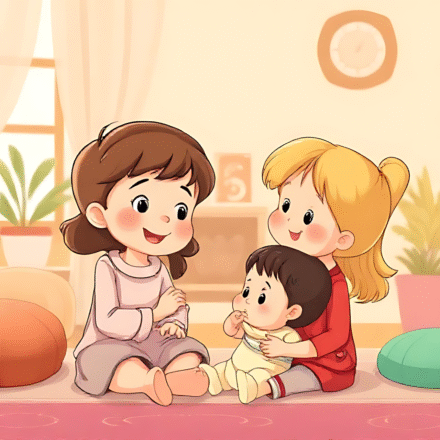
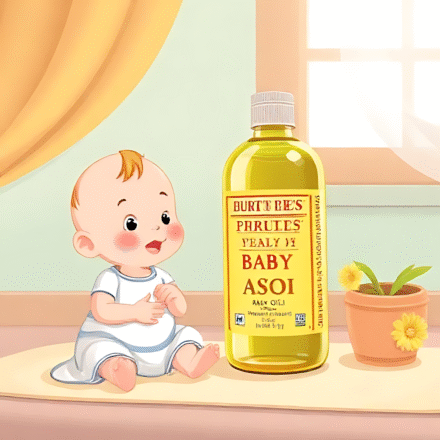
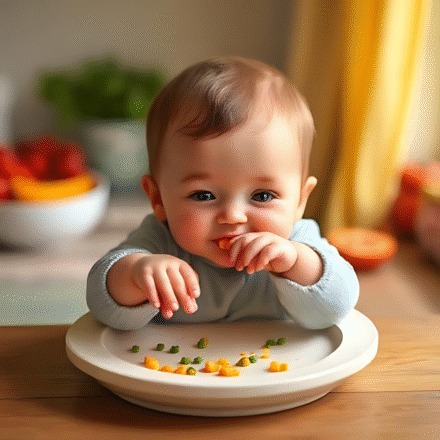
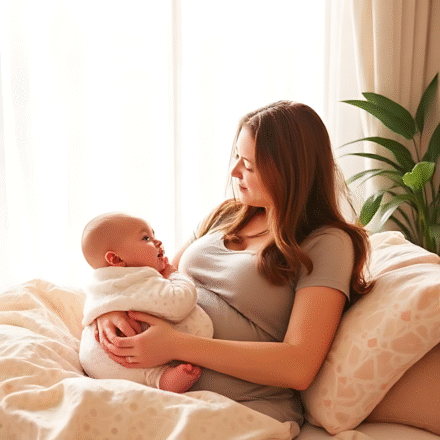
Leave a Comment